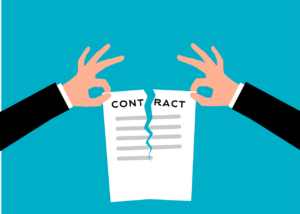Challenging a Will

When a family member or loved one dies in Ontario, estate disputes commonly arise between the remaining family members.
However, before challenging a will in court, there are some things you should be aware of. Simply because you were left out of a will or feel that you were not treated fairly is not a sufficient reason to challenge a will. Parents, for example, are under no obligation to leave their children anything in a will (unless they are dependants).
Having said that, there are several grounds upon which wills can be challenged. These include:
- lack of provision for spouse or dependants
- unclear intentions
- errors or non compliance (the will was not signed or witnessed)
- fraud
- undue influence
- lack of capacity
The last two, undue influence and lack of capacity, are probably the two main grounds on which wills are challenged.
Undue influence
Undue influence can be very difficult to prove. It exists when a beneficiary tries to pressure a person to make a new will or change it to be more favourable to them. There are a number of circumstances that can help in establishing undue influence, some of which are: isolation of the testator, the testator’s dependance upon the alleged influencer, and asset transfers to the alleged influencer before death.
Lack of capacity
Generally, a person is considered capable of making the will if:
- they are able to conceptualize the idea that they will die at some point
- they have a good idea of what assets they have and of their value
- they are able to say who they want to give their assets to when they die and, if they are excluding someone who would otherwise normally be included, they must understand the effect of this exclusion
If there is a concern that a person does not have the capacity to make a will and if they’re still alive, arrangements can be made to medically have their capacity assessed. However, if the person has died, a challenge will have to be based on the evidence available to try to prove that the testator lacked capacity at the time of making the will and did not understand what they were doing.
Challenging a will in court and overcoming the presumption that it states the testor’s intentions can be a difficult process. It’s important to consult with experienced lawyers to understand your rights, options, and chances of success.

